Politics
Black Sea city unveils new rafting spot to boost tourism
TRABZON
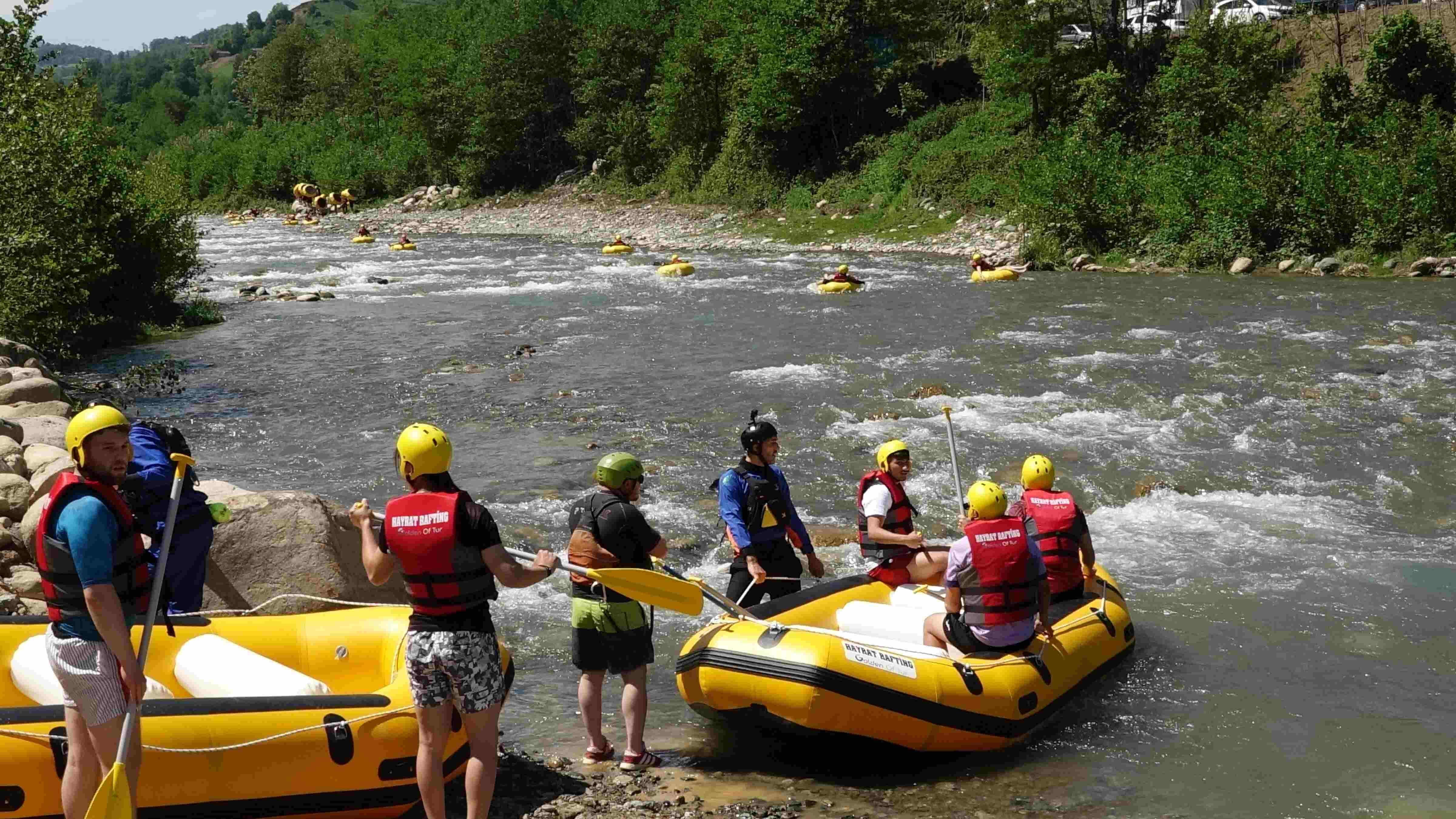
A new 10-kilometer rafting course winding through two fiery streams in the northeastern province of Trabzon is gearing up to host thousands of local and foreign thrill-seekers this summer, aiming to further boost adventure tourism in the Black Sea region.
The newly inaugurated rafting park, located in the Hayrat district, features four distinct sections that offer an exciting experience for nature lovers and adrenaline enthusiasts alike.
Following the recent opening ceremony, a 2.5-kilometer segment of the course was officially opened for use.
Open daily from 9 a.m. to 6 p.m., the course offers a nature-immersed, safe and enjoyable experience, with ambitions to offer a fresh location for rafting tourism.
Tourism operator Gökhan Çakır, who spearheaded the project, said the course was developed to introduce a new destination for visitors.
“I’ve been running a travel agency for 25 years and had long been considering new activities. Having spent my childhood in these streams, I knew Hayrat’s rivers well and believed they were ideal for rafting,” he explained.
With support from the governor’s office and authorization from the relevant authorities, the project has been officially launched.
“The course was initially used for student training by Trabzon University’s Faculty of Sports Sciences. Now, while they continue their practical education, we will also serve tourists,” he noted. “We will being formal operations within 20 days. Our goal is to host around 100,000 visitors this season.”
He emphasized that many Middle Eastern visitors in the city currently travel roughly 200 kilometers to the Ayder Plateau in the neighboring city of Rize for rafting and that this new course aims to provide a closer, less crowded alternative.
Students and sports enthusiasts praised the new facility.
Sportsman Akın Değirmenci described it as “a valuable addition to the city” and said rafting in such a unique natural setting was exciting.
Senem Tekin, a trainee, highlighted the course’s safety, while another participant, Bahadır Demirci, called it a thrilling adventure in a river well-suited for rafting.
Politics
Turkish lawmakers join forces to curb violence by minors
Juvenile crime, crimes committed by minors, have troubled Türkiye in recent years, especially after well-publicized cases and online outrage. Underage people are often exploited by gangs to carry out hits, while the murder of children by their peers adds another layer of concern to the issue.
The Turkish Parliament set up a “Committee for Research on Children Driven to Crime,” and its members explained their work and suggestions to Anadolu Agency (AA) on Sunday.
Şebnem Bursalı, a lawmaker for the ruling Justice and Development Party (AK Party), recalled the recent murder of Atlas Çağlayan and how it left “a deep wound in public conscience.”
“This wound can only be healed by taking responsibility, pinpointing any negligence and finding permanent solutions. We are committed to such solutions,” she said. Seventeen-year-old Çağlayan was stabbed to death by a 15-year-old boy in Istanbul on Jan. 14 after a dispute.
Bursalı said such violent crimes involving children cannot be treated solely as criminal cases. She noted that children reached that point after a chain of negligence, spanning from family and education to digital environment and “reality on the street.” “We cannot overlook this; otherwise, it will be turning a blind eye to new tragedies,” she said.
“The need to update preventive social policies, the proliferation of unregulated digital content, the rise in violent rhetoric on the streets, and the failure to adequately protect children must all be addressed as part of the background to this murder,” she said.
Bursalı noted that the committee will present an effective, deterrent and preventive road map that treats children pushed into crime not as criminals but as individuals who must be protected and rehabilitated, while also prioritizing public safety and a sense of justice. “I would especially like to emphasize that our president is closely following the issue and has instructed the relevant institutions to take all necessary measures to prevent similar incidents from occurring. As the AK Party, we are striving to voice and put into practice his determined stance on every platform. We will follow this process through to the end under the roof of Parliament to ensure that similar tragedies are not repeated.”
Sibel Suiçmez, a lawmaker from the main opposition Republican People’s Party (CHP), noted that the committee was formed after the murder of 15-year-old Mattia Ahmet Minguzzi last year in Istanbul. “Unfortunately, the murder of Atlas Çağlayan followed it. The rise in the actions of children driven into crime, changes in their actions make this a worrying trend and something we have to tackle comprehensively,” she said.
Suiçmez said that they had to act in a calm manner and base their work on scientific data. “We should both address people’s safety concerns and delve into the root causes of the problem.”
“It is not correct to tie these only to children, their families, education and the judiciary system. In fact, they are all interconnected. This is something that should be tackled by several ministries, and a solution mechanism should involve harmony between different ministries,” she said.
Divisions and impunity
Suiçmez noted that the issue was divisive as well. “We see social media campaigns and prejudiced people handing out their ‘verdicts,’” she lamented. “We have to come up with a solution appropriate to our judicial system,” she said. Suiçmez cited surveys highlighting that increasing sentences did not prevent new crimes. “Of course, the children should be held accountable for crimes they committed, but this issue should not be confined merely to sentencing. Children are born innocent, and we have to discuss everything that brought them to that level, from their family, the place where he/she raised, whether they had equal access to education and whether they had sufficient support from the state,” she underlined.
She said violence was on the rise across the world and the number of minors driven to crime also increased, adding that digital platforms played a role in promoting crimes. “Türkiye has sufficient sentencing for such crimes, though public perception is different,” she stressed.
“In recent years, sentences have been significantly increased, particularly for crimes such as violence against women and the abuse of children, but the problem is not the severity of the punishment. The problem is that the sentences imposed are effectively reduced in their execution through changes to enforcement laws. If sentences handed down not only to children pushed into crime but also in other offenses are served consistently and as required, the public perception of impunity would be dismantled,” she said.
She added that while authorities call for harsher penalties and longer detention to prevent children from being drawn into crime, at the same time, releasing individuals whose convictions are final under criminal law early by amending the Law on the Execution of Sentences creates, rightly or wrongly, a perception of impunity in society. “That is why everyone must be sincere. In Türkiye, there is no deficiency in criminal law or in the sentences themselves; the problem lies in their implementation,” she said.
Suiçmez said the number of children driven into crime could be reduced despite economic difficulties through stronger coordination among institutions, an increase in the number of social workers and psychologists, the provision of sufficient police forces and proper working conditions for them, and training for judges, prosecutors and police officers on the juvenile justice system.
The number of incidents involving children reported to or brought before security units in Türkiye rose significantly in 2024, reaching 612,651, an increase of 9.8% compared to the previous year, according to data released by the Turkish Statistical Institute (TurkStat) last year.
The statistics reveal a broad picture of the reasons children interact with law enforcement across the country. Of the total cases, 279,620 children were identified as victims, while 202,785 were involved due to alleged criminal behavior, categorized as “children driven to crime.” Additionally, 96,438 children were questioned for informational purposes, 18,561 were reported missing and later found, 8,729 were involved in minor offenses, and 6,518 came to security units for other reasons not otherwise classified.
Among the children driven to crime, 40.4% were involved in assault-related incidents, 16.6% in theft and 8.2% in drug-related offenses, including use, sale or purchase of illegal substances. Other allegations included threats 4.6%, crimes creating general danger 4.2% and a wide array of other offenses accounting for 26% of the total.
Children who were victims represented 45.6% of the total number of cases. Of the 279,620 victimized children, 86.1% were victims of criminal acts, while the remaining 13.8% were involved in incidents requiring official follow-up but not necessarily categorized as crimes.
The most common offenses among child victims were assaults at 55.3%, followed by sexual crimes, 10.8%, human trafficking and migrant smuggling, 9.5%, family-related crimes at 8%, and other offenses, 16.5%.
Naci Şanlıtürk, member of the parliamentary committee for the Nationalist Movement Party (MHP), says the public was angered on sentence reduction for offenders below the age of 18. “If someone is aware that they committed a murder, even if he or she is below the age of 18, they should be tried on the same laws applying to adults,” he said.
Şanlıtürk pointed out different aspects of crimes committed by children. “We see bullying, football ultras forming criminal networks, we see sentence reductions serve as an incentive for children into crimes. On the other side, films and video games promote violence. We have to review those,” he said. Şanlıtürk says the family plays a central role in the life of a child, and they should reinforce laws to strengthen family bonds. He said their suggestions focused on mothers, such as paying monthly allowances to mothers-to-be without any social protection and payment of minimum wage for unemployed mothers of three.
Drawing attention to scenes of violence in television series and films, Şanlıtürk said movies and mafia-themed series must be closely scrutinized. “Films that glorify violence should be reviewed and not broadcast. When you look at the content of games, children sometimes do not even realize that what they are doing is a crime. They see it in society, on the internet, in films and in games. A comprehensive effort is needed to prevent this,” he said.
Emphasizing the need to stop criminal networks from exploiting children, Şanlıtürk said. “We must prevent criminal gangs from laying their hands on our children, we must break those hands. It is wrong to lure 15- and 16-year-olds into crime with money on the assumption that there will be sentence reductions. There is also strong public sensitivity on this issue,” he added.
Politics
Arrest, outrage after far-right man targets Turkish mayor’s dress
Authorities announced on Sunday that a suspect insulting a woman mayor was arrested while his party moved to expel him.
Mehmet Emin Korkmaz was behind a scandalous tweet that made rounds on the social media. Korkmaz, a member of the far-right Good Party (IP) hurled insults on Zeynep Güneş, mayor of Mihalgazi district of central province of Eskişehir. “Look at this mayor! She is more appropriate for milking cows in her farm than running a town,” Korkmaz wrote in a tweet accompanying a photo of Güneş. Güneş, a three-term mayor, usually wears a traditional dress popular among female villagers in parts of Türkiye. Korkmaz further disparaged Güneş as “uneducated” and mocked her şalvar, a part of her outfit.
Among mounting public outrage over remarks, prosecutors in Eskişehir launched an investigation into Korkmaz on charges of inciting hatred in public. Korkmaz was detained and remanded into custody on Sunday. IP Secretary-General Osman Ertürk Özel announced on the same day that they referred Korkmaz to the party’s disciplinary board for expulsion as he offered the party’s support to Güneş for “rude behavior she is exposed to.” Özel said in a social media post that only heinous people would insult others based on their choice of dressing. “Turkish women can rule the world, whatever they prefer to wear,” Özel wrote.
Ömer Çelik, spokesperson for ruling Justice and Development Party (AK Party) where Güneş serves as mayor, denounced the incident in a social media post and described it as “hate speech.” “We are grateful to everyone condemning this toxic rhetoric,” he wrote. Eskişehir Mayor Ayşe Ünlüce, of the main opposition Republican People’s Party (CHP) rushed to the side of Güneş. Ünlüce posted a photo of “Mayor Zeynep” in the same dress she was wearing when Korkmaz insulted her. “I condemn the discriminatory expressions towards the mayor. We fight this disrespectful mindset against women. As a member of the republic, which granted right to elect and be elected to women, I cannot accept this dirty language attacking women on what they wear. We are with Mayor Zeynep and against this mindset, the women will prevail in every venue,” she said in a statement.
Politics
Erdoğan welcomes Jordan’s King Abdullah II in Istanbul
President Recep Tayyip Erdogan on Saturday welcomed Jordan’s King Abdullah II with an official ceremony during the monarch’s visit to Türkiye.
Following the ceremony at the Dolmabahçe Presidential Office in Istanbul, Erdoğan and King Abdullah held a one-on-one meeting before talks expanded to include delegations from both countries.
Senior Turkish officials attending the meetings included Defense Minister Yaşar Güler, Foreign Minister Hakan Fidan, National Intelligence Organization head Ibrahim Kalın, and Erdoğan’s chief foreign policy and security adviser, Akif Çağatay Kılıç.
“In addition to bilateral relations, the two leaders will discuss current developments in the region and steps that can be taken to ensure stability,” Communications Director Burhanettin Duran said on X.
No further details were immediately available about the meeting.
Politics
Türkiye captures 2 suspected of spying for Mossad in Istanbul
The National Intelligence Organization (MIT) detained two individuals in Istanbul on suspicion of working for Israel’s intelligence service, Mossad, in a joint operation with the city police and judicial authorities, security sources said Friday.
The suspects, identified as Mehmet Budak Derya and Veysel Kerimoğlu, spied for and transferred information to Mossad over an extended period. They had been under MIT surveillance for some time before being apprehended in an operation referred to as the “MONITUM Activity.”
According to security sources, Derya, a mining engineer, founded a company in 2005 and opened a marble quarry in the Silifke district of southern Mersin province, later exporting products to multiple countries. His international trade activities drew the attention of Mossad, which allegedly established contact with him through an individual operating under the code name “Ali Ahmed Yassin,” described as a representative of a front company set up by Israeli intelligence.
Sources said Yassin visited Derya in 2012, presenting a potential business opportunity and inviting him to a meeting with company executives in Europe. Derya allegedly traveled abroad in 2013, where he met with individuals posing as company owners but later identified as members of Israeli intelligence.
Investigators said that during these meetings, Derya was instructed to hire Kerimoğlu, a Turkish citizen of Palestinian origin, and report back on their joint activities. Authorities said Derya complied with the directive, hiring Kerimoğlu and maintaining close personal and professional ties with him, while allegedly receiving instructions and even salary payments for Kerimoğlu from intelligence operatives.
Intelligence, trade-linked activities
Security sources said that after hiring Kerimoğlu, Derya expanded commercial operations targeting Middle Eastern countries. Through Kerimoğlu, he allegedly developed social and business relations with Palestinians opposed to Israel’s policies toward Middle Eastern states, including Gaza, and shared information about these contacts with Israeli intelligence.
Authorities said Derya also sought entry permits to Gaza by leveraging commercial links and allegedly transmitted photographs of storage facilities he searched for in the territory to Mossad operatives.
Investigators further said Kerimoğlu proposed expanding their commercial ventures into drone parts trading in early 2016. Derya allegedly relayed the proposal to Israeli intelligence officials, and after receiving approval, the first product samples were reportedly supplied by Mossad. Authorities noted that one of the individuals the suspects allegedly attempted to sell drones to, Mohamed Zouari, was assassinated in Tunisia in 2016 by Israeli intelligence.
Derya maintained contact with Israeli intelligence from 2013 until his detention, holding meetings in several European countries with operatives using code names including “Luis,” “Jesus/Jose,” “Dr. Roberto/Ricardo,” “Dan/Dennis,” “Mark,” “Elly/Emmy” and “Michael.”
Israeli intelligence provided Derya with encrypted communication systems to maintain operational secrecy. He was also subjected to polygraph tests in an Asian country in 2016 and again in a European country in 2024, both of which he allegedly passed, after which he reportedly assumed a more advanced role in intelligence-related operations.
Derya also procured SIM cards, internet modems and router devices from Türkiye and other countries, transmitting photographs of device labels containing technical details such as serial numbers, production data and MAC addresses to Mossad contacts.
Derya was most recently tasked with establishing a front company abroad to infiltrate international supply chains. According to the alleged plan, the company would coordinate procurement and shipment of products from countries designated by Mossad to final destinations identified by Israeli intelligence, working with three legitimate companies operating in Asia at different stages of the logistics process.
Authorities said preparations for the company included establishing bank accounts, designing a website, opening social media accounts and conducting research into potential partner firms. Derya’s latest meeting with Mossad operatives regarding the project was reportedly held abroad in January.
Turkish intelligence, in recent years, has uncovered several spy networks operated by independent groups, terrorist organizations like Daesh, or foreign intelligence agencies in Türkiye.
According to Turkish security sources, Mossad often uses online communication applications to recruit operatives to spy on Palestinians and other foreign nationals living in Türkiye.
Politics
Canada PM Carney calls Türkiye vital NATO ally, signals deeper ties
Canadian Prime Minister Mark Carney on Thursday called Türkiye a key NATO ally for Canada and said the two countries have strong potential to deepen cooperation, especially in trade and industrial sectors.
“Let me reinforce a few things in it. One is Türkiye is a vital partner in NATO, a vital partner in a very important and sometimes challenging part of the world,” Carney told reporters at a news conference in Vaughan.
Highlighting economic cooperation, he said: “In addition, there is tremendous opportunity. We have a series of opportunities to deepen our commercial relationships with Türkiye,” noting that he had begun discussions with President Recep Tayyip Erdoğan in New York at the U.N. General Assembly in September last year and planned to follow up.
He added that cooperation could extend to “aspects of defense cooperation and nuclear cooperation” while stressing the broader scope of the relationship.
“I’ll just make the observation that since we’re here, Türkiye is one of the leaders in manufacturing globally, including advanced manufacturing,” Carney said, noting that there are “areas where we can partner without question.”
During the news conference, Carney also announced “a new, more ambitious sovereign path” for Canada’s auto sector, unveiling a national automotive plan that includes $2.3 billion in new purchase and lease incentives to boost zero-emission vehicle adoption.
As part of the shift, the government is repealing the previous electric vehicle (EV) sales mandate and replacing it with stricter greenhouse gas emission standards for model years 2027 to 2032.
“We’re tightening by twofold our (greenhouse gas) emissions standards, and we’re giving the industry the flexibility on how they achieve that,” Carney said.
Canada suspended drone technology sales to Türkiye in 2020 after concluding its optical equipment attached to Turkish-made drones had been used by Azerbaijan while fighting illegally occupying Armenian forces in Karabakh, the Azerbaijani enclave Baku has since liberated.
In January 204, it announced it had dropped weapon export controls on drone parts, including the imaging and targeting system, shortly after Türkiye formally approved Sweden’s NATO membership bid.
Politics
Türkiye condemns suicide attack on mosque in Pakistan
Türkiye on Friday condemned the suicide bombing that struck a mosque in the Pakistani capital during Friday prayers, voicing strong solidarity with Pakistan in its fight against terrorism.
In a written statement on the Turkish social media platform NSosyal, the Turkish Foreign Ministry said it “strongly condemns the terrorist attack carried out today against a mosque during Friday prayers in Islamabad.”
The statement extended condolences to the families of those who lost their lives and to the people of Pakistan, wishing mercy upon the victims. It also said Türkiye would continue to stand in solidarity with Pakistan in its counterterrorism efforts.
According to Pakistani authorities, at least 31 people were killed and more than 169 others injured when a suicide bomber blew himself up inside a mosque in Islamabad during Friday prayers. The explosion hit the Imambargah Mosque, a Shia Muslim place of worship in Islamabad’s Shehzad Town area.
Mosharraf Zaidi, Prime Minister Shehbaz Sharif’s spokesman, said the attack at the Imambargah in Islamabad “is only the latest in a series of murderous terrorist attacks orchestrated by India.”
“India’s terrorist proxies will neither slow down economic recovery, nor divide Pakistani hearts, nor undermine Pakistan’s growing diplomatic capital,” Zaidi stated on X. New Delhi was yet to react to the allegations made by Islamabad.
-
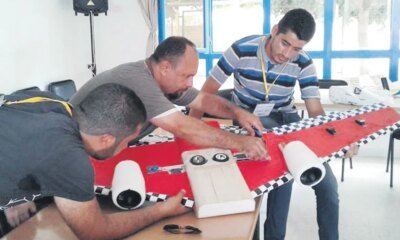
 Daily Agenda2 days ago
Daily Agenda2 days agoHistorical blow from MİT to Mossad: Trade-masked assassination network collapsed
-
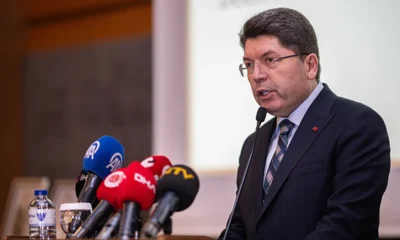
 Daily Agenda17 hours ago
Daily Agenda17 hours agoMinister of Justice Tunç: “The regulation regarding children involved in crime will come to the parliament after the commission works are completed.”
-
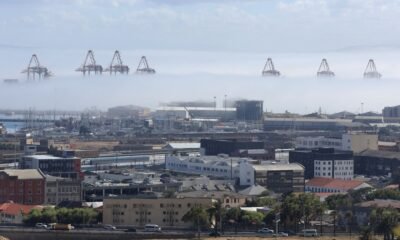
 Economy15 hours ago
Economy15 hours agoFacing US tariffs, South Africa steps toward trade deal with China
-
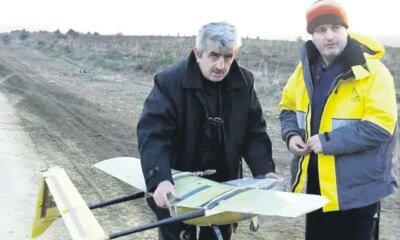
 Daily Agenda1 day ago
Daily Agenda1 day agoA Akıncı passed from this world
-
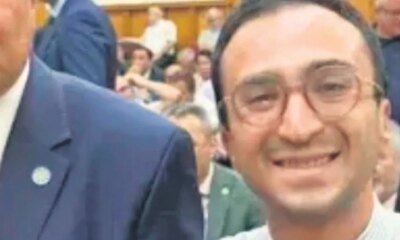
 Daily Agenda6 hours ago
Daily Agenda6 hours agoImmoral and excessive attack on women
-
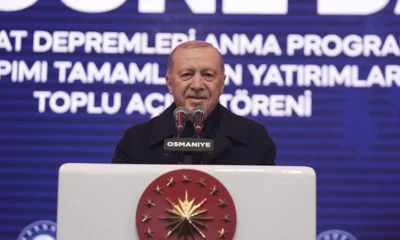
 Daily Agenda3 days ago
Daily Agenda3 days agoBreaking news! President Erdoğan spoke in Osmaniye on February 6: We were reborn to 86 million people, we showed the power of Türkiye!
-

 Sports17 hours ago
Sports17 hours agoTurkish center Alperen Şengün named in 2026 NBA All-Star
-
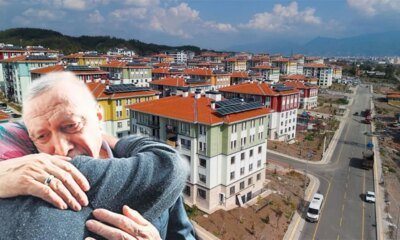
 Daily Agenda2 days ago
Daily Agenda2 days agoWe showed the power of Türkiye as 86 million




